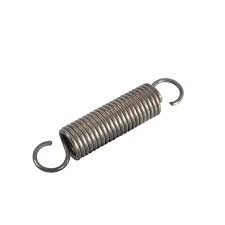
- Mobile Phone
- +8613931874955
- sales@cntcmetal.com
chain mesh fencing cost per metre
Understanding Chain Mesh Fencing Costs Per Metre
Chain mesh fencing, also known as chain link fencing, has long been a popular choice for both residential and commercial properties. Its durability, affordability, and versatility make it an appealing option for various applications, from securing a backyard to enclosing a sports field. However, before making a decision, it’s essential to understand the costs associated with chain mesh fencing per metre, as several factors can influence the final price.
Material Costs
The primary component of any chain mesh fence is, of course, the mesh itself. Chain mesh fencing is typically made from galvanized steel wire that is woven into a diamond pattern. The cost of the mesh can vary based on several factors, including wire gauge, coating type, and the height of the fence.
1. Wire Gauge The thickness of the wire affects both the strength and price of the fence. Thicker wires (lower gauge numbers) tend to be more expensive but offer greater resistance to bending and breaking. Conversely, lighter gauges may be more affordable but can be less durable.
2. Coating Type Chain link fences are usually coated in either galvanized steel or vinyl. Galvanization involves coating the steel with a layer of zinc, protecting it from rust and corrosion, making it suitable for outdoor use. Vinyl-coated options come in various colors and provide additional aesthetic appeal, though they tend to be more expensive.
3. Height of the Fence The cost will also vary depending on how tall you want your fence to be. Standard heights include 1.2 meters, 1.8 meters, and 2.4 meters, with taller fences generally costing more due to the increased material used.
Installation Costs
In addition to material costs, installation can significantly impact the overall price of chain mesh fencing. While some homeowners choose to undertake a DIY approach, hiring professionals is often advisable for larger projects or those with specific requirements.
1. Labor Costs The labor rates for fence installation can vary by region and the contractor's experience. Expect to pay more if the installation requires specialized skills or additional equipment.
chain mesh fencing cost per metre

2. Site Preparation Costs may also arise from preparing the site for installation, including clearing debris, leveling the ground, and addressing any drainage issues.
3. Gates and Accessories If your fencing plan includes gates, you’ll need to factor in their costs as well. Gates can range from simple designs to more elaborate options, impacting the overall expenditure.
Maintenance Costs
While chain mesh fencing is relatively low-maintenance, some costs should be considered in the long term. Inspections and minor repairs may be necessary over time, especially if the fence is exposed to harsh weather or environmental conditions. Regular maintenance, such as cleaning the fence and checking for rust or damage, will help extend its lifespan.
Comparing Prices
When shopping for chain mesh fencing, it’s wise to compare prices from different suppliers and contractors. Many retailers provide online quotes, allowing you to assess the costs more effectively. Look for package deals that may include materials and installation to potentially save on expenses.
Additionally, consider the total cost per meter, which will give you a clearer understanding of your budget. Keep in mind that the cheapest option may not always be the best in terms of quality and durability, so it’s important to find a balance between affordability and reliability.
Conclusion
In summary, the cost of chain mesh fencing per metre can vary significantly based on material choices, installation requirements, and regional labor rates. Understanding these factors will allow you to make a well-informed decision that fits your budget while meeting your fencing needs. Whether you are looking to enhance security, define property lines, or create a safe play area for children or pets, chain mesh fencing offers a practical and economical solution for many applications.
share:
-
The Ultimate Solution for Display Needs: Wire Grid PanelsNewsMay.06,2025
-
The Ultimate Guide to Galvanized Steel WireNewsMay.06,2025
-
Iron Binding Wire: The Ideal Solution for Your NeedsNewsMay.06,2025
-
Explore the Strength and Versatility of Galvanized Welded Wire FabricNewsMay.06,2025
-
Discover the Durability and Versatility of PVC Galvanized WireNewsMay.06,2025
-
Discover Quality China Stainless Steel Wire MeshNewsMay.06,2025
-
Understanding Wall Ties: Types and ImportanceNewsApr.28,2025



















